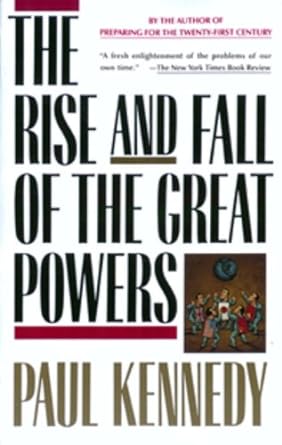
The delicate process of writing history comes in the form of mastering all sources well; often having to read multiple languages. The Ph.D. degrees in Harvard and other top universities in the US require the mastery of no less than two additional languages other than English. Paul Kennedy, a British historian at Yale University, has been exceptional in the sense that most of his books, including “Rise and Fall of the Great Powers,” which is a classic, are written almost in their entirety with English sources.
But what makes the book an amazing read is the exceptional thesis it peddles: When great powers begin to over-reach, what Paul Kennedy called “imperial over-stretch,”, they will undergo the process of withering in their weight. The Japanese, Chinese, British, Ottoman, and US empires, according to Paul Kennedy, have and will continue to face this dilemma.
Hence, Paul Kennedy has urged the United States to exercise due caution, especially after the United States has by 1989 “won” the Cold War. People were liberated by the millions, and the Communist regimes were toppling down one after the other. In the book, Paul Kennedy spoke amply of economic reform or restructuring. At the very least, a country should not become overly engrossed and involved in the affairs of others.
This cardinal sin, according to Paul Kennedy, seems to be the major faux pas of the United States. But between 1989, when the book was first published, and now, the United States is still standing. The election of President Donald Trump further displayed the zeal of the Americans to be even more gung ho. Right after Paul Kennedy’s book was published, Joseph Nye wrote “Bound to Lead,” to challenge Paul Kennedy’s thesis. In the book, Nye argued that coercive power alone cannot save the day. In this sense, Nye is right. What is just as important is the notion of “soft power.”
